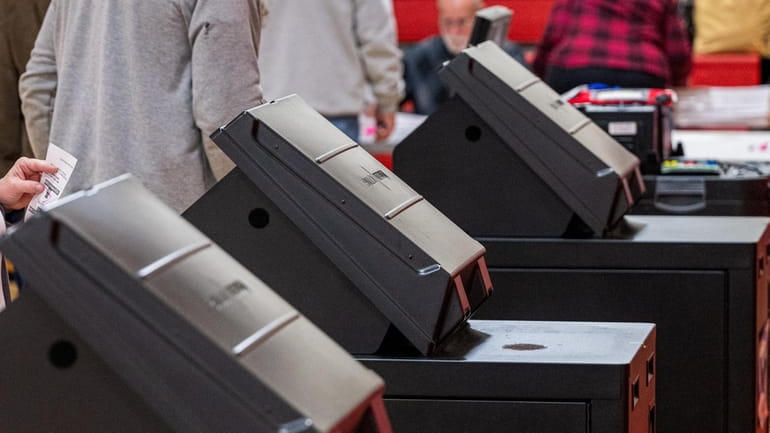Center Moriches' $13.9M school bond goes to voters Tuesday

Voters in Center Moriches will decide on bond borrowing that includes repairing the high school auditorium, replacing boilers and fixing cracked sidewalks. Credit: Tom Lambui
The Center Moriches School District has scheduled a Tuesday vote on a $13.9 million bond issue intended to repair the district's aging facilities and protect students' health and safety after voters rejected a larger proposal in October.
Local officials said the bond borrowing, if approved, would cost the average homeowner $111 a year in additional property taxes. Officials added that the state would reimburse 78% of costs over the 15 years required to pay off expenses.
Voting is scheduled from 7 a.m. to 9 p.m. in the Main Street gym of Clayton Huey Elementary School.
Superintendent Ron Masera said the referendum was preceded by months of discussion and a community survey, in which residents were asked what they considered key priorities for the district. The result, Masera said, were projects focused on immediate renovation and repair.
“Everything in this bond issue addresses our aging infrastructure and is health and safety related,” Masera said in a phone interview Monday.
Some key details of the proposal:
- Major repairs of the high school auditorium, which the district says serves as a site of most large-scale community events. This would include replacement of broken seats and torn cushions. Also, an outdoor track would be replaced.
- Repavement of cracked sidewalks and asphalt surfaces at both the high school/middle school and at the Clayton Huey school. At the secondary school, there would also be security upgrades, window/wall replacement and a new roof.
- Replacement at both buildings of boilers dating back to 1978.
Center Moriches' latest plan is a pared-down version of a $45 million bond proposal, which was defeated by voters in October. Masera, now in his fifth year as the district's school chief, noted that the new proposal concentrates on priorities such as damaged walkways that could directly affect safety, in contrast to the earlier project that included renovations meant to enhance instruction.
District officials, including Keri Loughlin, assistant superintendent for business, estimated that renovation work, once approved, could be completed within two or three years, pending agreement by the state's Department of Education. Loughlin added that obtaining permits would require 26 months' time.
At a March 13 forum, Masera and Loughlin spent an hour answering questions from residents. One audience member wanted to know if the district would be “on the hook,” financially, if the state failed to provide reimbursement of costs. Another resident asked why the district had not made certain repairs, such as replacement of auditorium seats, on a continuing basis, rather than waiting for a bond issue to pass.
On the reimbursement issue, school officials said this was done according to a funding formula already put in place by the state. On the question of continuing repairs, officials said it was often impossible to pay for repairs out of an annual budget meant to cover operating costs, especially under financial restrictions imposed by the state's tax-cap law.

